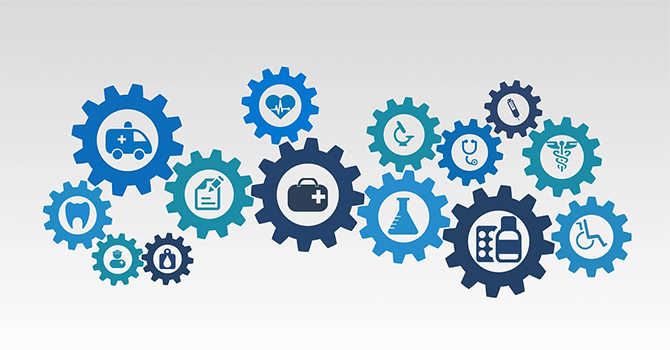Building Trust in Public Health

Karen Burke
MPH Candidate, Epidemiology
After spending last Thanksgiving quarantined due to a suspected case of the measles, I seriously reconsidered my career path in epidemiology. Had I not been a student of public health, this experience may have permanently shaken my faith in health institutions.
But, before we dive into my measles scare, let's look at the this issue more broadly.
As of April 2016, the Ebola epidemic had ended the lives of 4,810 people in Liberia and 3,956 people in Sierra Leone. Nigeria, in contrast, reported only eight deaths1.
Doubting the credibility of Ebola's existence, many people in Sierra Leone and Liberia did not comply with government-mandated measures to control its spread. Lack of trust in the government, fueled by recent civil wars and corruption, crippled the capacity of Sierra Leone and Liberia to control the disease outbreak8. In contrast, by the time the virus spread to Nigeria, there was little doubt whether Ebola presented a real threat, and the same recommended control measures were effective in protecting the population. Perceptions of trustworthiness moderate the effectiveness of public health systems2,3,4,5.
This is an issue in the US as well. Faltering public trust in health institutions in the US is evidenced by pessimistic views of the country's health. According to a 2017 survey conducted by the Pew Research Center, 48 percent of Americans believe children's health overall is worse today than it was 20 years ago7.
With only 17 percent of US adults saying that they trust the government in Washington to do what is right always or most of the time7, it is likely the US health system is experiencing a weakened capacity to operate effectively.
Back to my quarantine experience—this personal experience shed light on a subtle way individuals' trust in health systems can be broken.
Days before Thanksgiving last year, I contracted a strange illness that the provider at my local health center believed to be measles. Though almost none of my symptoms were consistent with measles, the diagnosis sounded alarms and, within hours, the CDC was alerted of my case.
It was not the incorrect diagnosis or numerous erroneous test results that left me feeling wary. It was the manner in which I was treated as a mere contagion rather than a very sick human being.
The only instruction I was given was to self-quarantine. While the health department called me repeatedly to make sure I hadn't interacted with others, no one appeared to consider I would need a way to get food, or someone to call in an emergency. The providers from whom I sought care treated me from the lens of the population when I needed help as an individual.
By and large I believe that most researchers and health professionals have human well-being at heart, and good communication is the primary means by which trust in health institutions can be built. If anyone had simply asked how I would have basic needs taken care of, I would have felt very differently about the entire event
The WHO has created a guide called "Guidance For Managing Ethical Issues In Infectious Disease Outbreaks" that outlines key ethical principles for managing disease outbreaks. Guides such as this should be used when designing public health messages and treating individual patients. Most importantly, health providers—especially those working in infectious disease—must keep in mind the necessity of building trust with the people they treat so they can be successful doing what is truly noble work.
Sources
- Centers for Disease Control. (2016). 2014-2016 Ebola Outbreak in West Africa. https://www.cdc.gov/vhf/ebola/outbreaks/2014-west-africa/index.html
- Cairns, G., de Andrade, M., & MacDonald, L. (2013). Reputation, relationships, risk communication, and the role of trust in the prevention and control of communicable disease: a review. Journal of health communication, 18(12), 1550-1565.
- Abraham , T. ( 2009 ). Risk and outbreak communication: Lessons from alternative paradigms .Bulletin of the World Health Organization ,87 , 604 –607
- Abraham, T. ( 2010 ). Personal view: The price of poor pandemic communication .BMJ, 340 , 1307.
- Gilson , L. ( 2003 ). Trust and the development of health care as a social institution .Social Science & Medicine ,56 , 1453 – 1468
- World Health Organization. (2016). Guidance for managing ethical issues in infectious disease outbreaks. World Health Organization.
- Pew Research Center. (2018). Americans Views about Health Studies and Health in the News. http://www.pewinternet.org/2017/02/02/americans-views-about-public-health-and-health-studies-in-the-news/
- Blair, R. A., Morse, B. S., & Tsai, L. L. (2017). Public health and public trust: Survey evidence from the Ebola Virus Disease epidemic in Liberia. Social Science & Medicine, 172, 89-97.
About the Author
Karen Burke is a graduate student in Global Health Epidemiology at the University
of Michigan School of Public Health. She hopes to apply her background in education
as an ESL instructor to a passion for health research in the field of health communications.
Karen currently works as the assistant editor of the Pre-Publication Support Service
(PREPSS), a service that provides support to health researchers in low-resource settings
to develop their manuscripts for publication submission.
